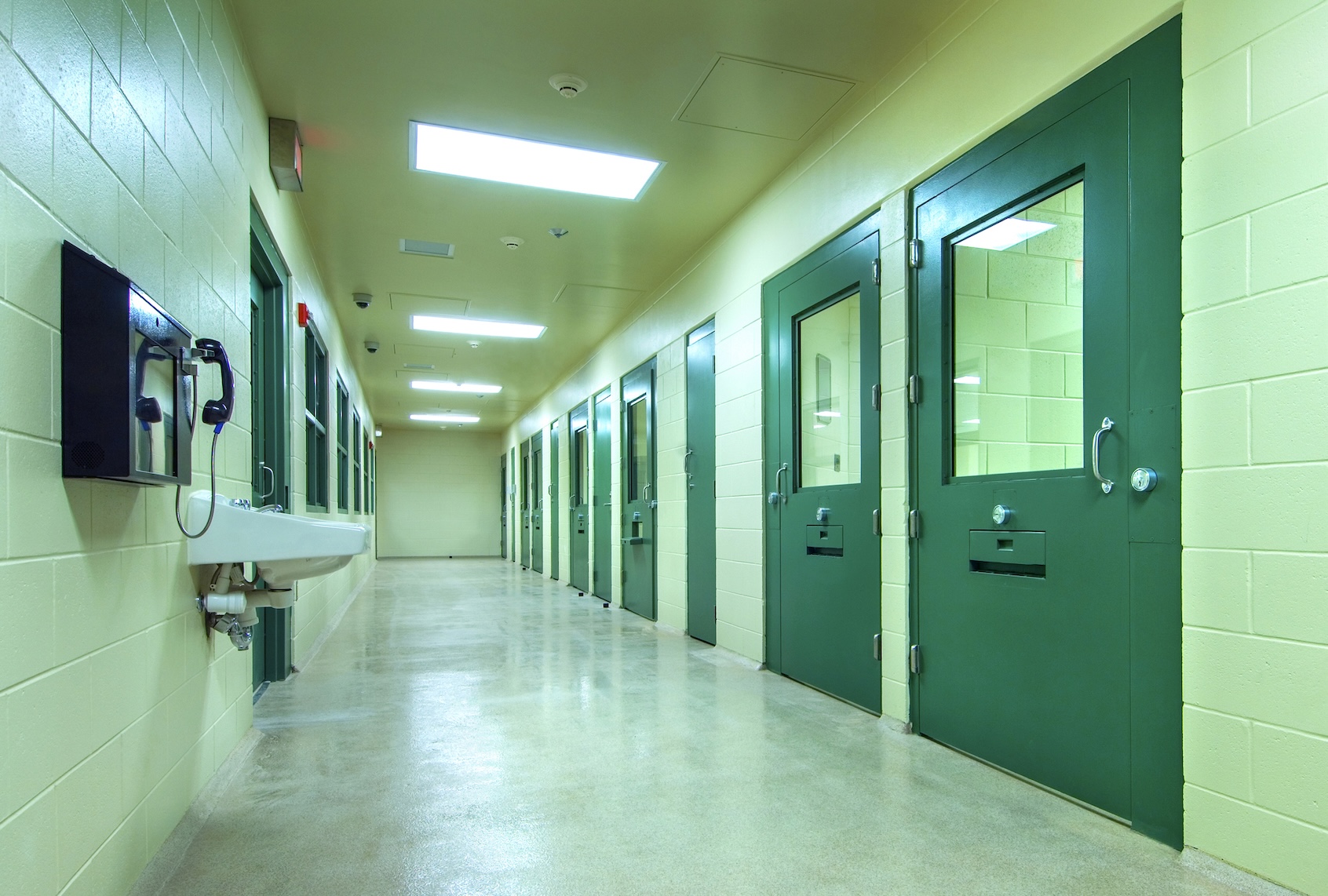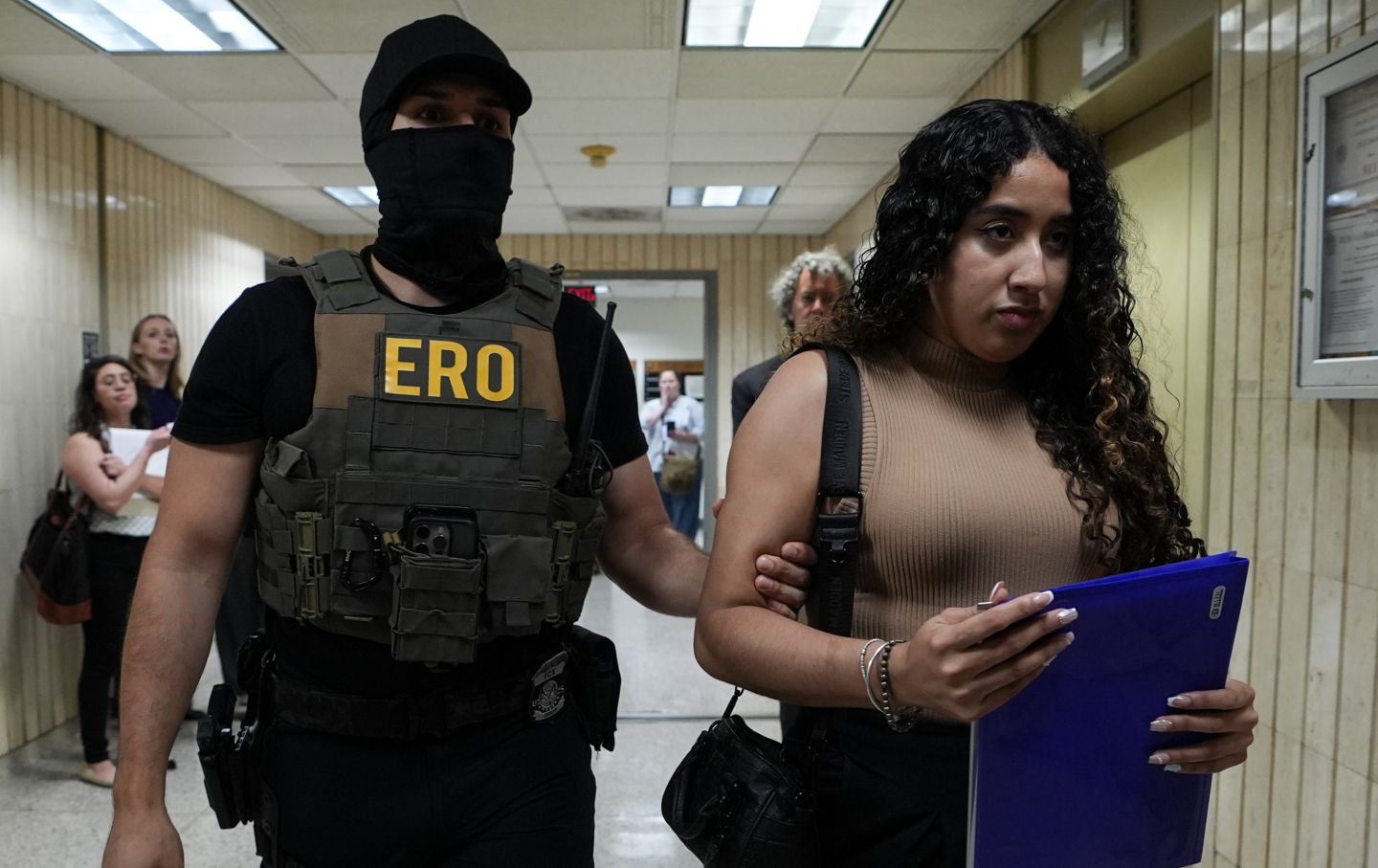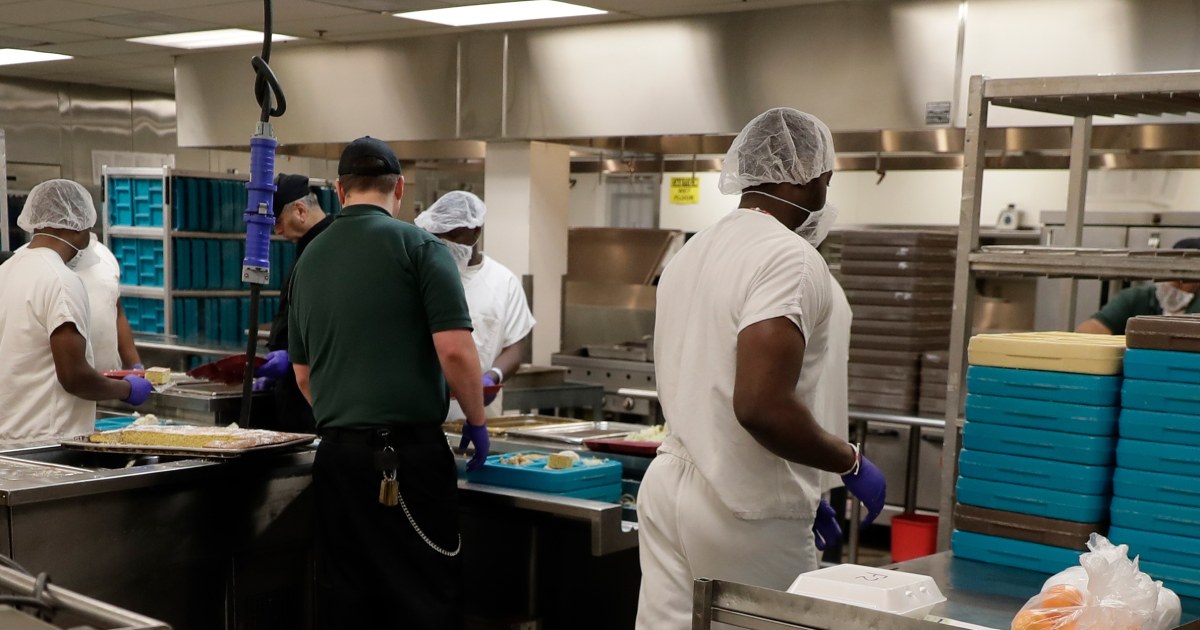- Jesús Cruz came to Los Angeles 33 years ago. He was sent back to Mexico and his wife faced an impossible decision. Should she and their children join him in Mexico? Or stay in Inglewood?
- ‘I want them to have a better life,’ Cruz says of his U.S.-born children. ‘Not the one I had.’
On a hot June night Jesús Cruz at last returned to Kini, the small town in Mexico’s Yucatán Peninsula where he spent the first 17 years of his life.
His sister greeted him with tearful hugs. The next morning she took him to see their infirm mother, who whispered in his ear: “I didn’t think you’d ever come back.”
After decades away, Cruz was finally home.
Yet he was not home.
So much of what he loved was 3,000 miles away in Southern California, where he resided for 33 years until immigration agents swarmed the car wash where he worked and hauled him away in handcuffs.
Cruz missed his friends and Booka, his little white dog. His missed his house, his car, his job.
But most of all, he missed his wife, Noemi Ciau, and their four children. Ciau worked nights, so Cruz was in charge of getting the kids fed, clothed and to and from school and music lessons, a chaotic routine that he relished because he knew he was helping them get ahead.
“I want them to have a better life,” he said. “Not the one I had.”
Now that he was back in Mexico, living alone in an empty house that belonged to his in-laws, he and Ciau, who is a U.S. permanent resident, faced an impossible decision.
Should she and the children join Cruz in Mexico?
Or stay in Inglewood?
Cruz and Ciau both had families that had been broken by the border, and they didn’t want that for their kids. In the months since Cruz had been detained, his eldest daughter, 16-year-old Dhelainy, had barely slept and had stopped playing her beloved piano, and his youngest son, 5-year-old Gabriel, had started acting out. Esther, 14, and Angel, 10, were hurting, too.
But bringing four American kids to Mexico didn’t seem fair, either. None of them spoke Spanish, and the schools in Kini didn’t compare with those in the U.S. Dhelainy was a few years from graduating high school, and she dreamed of attending the University of California and then Harvard Law.
There was also the question of money. At the car wash, Cruz earned $220 a day. But the day rate for laborers in Kini is just $8. Ciau had a good job at Los Angeles International Airport, selling cargo space for an international airline. It seemed crazy to give that up.
Ciau wanted to hug her husband again. She wanted to know what it would feel like to have the whole family in Mexico. So in early August she packed up the kids and surprised Cruz with a visit.
Kini lies an hour outside of Merida in a dense tropical forest. Like many people here, Cruz grew up speaking Spanish and a dialect of Maya and lived in a one-room, thatched-roof house. He, his parents and his five brothers and sisters slept in hammocks crisscrossed from the rafters.
His parents were too poor to buy shoes for their children, so when he was a boy Cruz left school to work alongside his father, caring for cows and crops. At 17 he joined a wave of young men leaving Kini to work in the United States.
He arrived in Inglewood, where a cousin lived, in 1992, just as Los Angeles was erupting in protest over the police beating of Rodney King.
Cruz, soft-spoken and hardworking, was overwhelmed by the big city but found refuge in a green stucco apartment complex that had become a home away from home for migrants from Kini, who cooked and played soccer together in the evenings.
Eventually he fell for a young woman living there: Ciau, whose parents had brought her from Kini as a young girl, and who obtained legal status under an amnesty extended by President Reagan. They married when she turned 18.
As their family grew, they developed rituals. When one of the kids made honor roll, they’d celebrate at Dave & Buster’s. Each summer they’d visit Disneyland. And every weekend they’d dine at Casa Gambino, a classic Mexican restaurant with vinyl booths, piña coladas and a bison head mounted on the wall. On Fridays, Cruz and Ciau left the kids with her parents and went on a date.
As the father of four Americans, Cruz was eligible for a green card. But the attorneys he consulted warned that he would have to apply from Mexico and that the wait could last years.
Cruz didn’t want to leave his children. So he stayed. When President Trump was reelected last fall on a vow to carry out mass deportations, he tried not to worry. The government, he knew, usually targeted immigrants who had committed crimes, and his record was spotless. But the Trump administration took a different approach.
On June 8, masked federal agents swarmed Westchester Hand Wash. Cruz said they slammed him into the back of a patrol car with such force and shackled his wrists so tightly that he was left with bruises across his body and a serious shoulder injury.
Ciau, who was helping Esther buy a dress for a middle school honors ceremony, heard about the raid and raced over. She had been at the car wash just hours earlier, bringing lunch to her husband and his colleagues. Now it was eerily empty.
Cruz was transferred to a jail in El Paso, where he says he was denied requests to speak to a lawyer or call his family.
One day, an agent handed him a document and told him to sign. The agent said that if Cruz fought his case, he would remain in detention for up to a year and be deported anyway. Signing the document — which said he would voluntarily return to Mexico — meant he could avoid a deportation order, giving him a better shot at fixing his papers in the future.
Cruz couldn’t read the text without his glasses. He didn’t know that he very likely would have been eligible for release on bond because of his family ties to the U.S. But he was in pain and afraid and so he signed.
Returning to Kini after decades away was surreal.
Sprawling new homes with columns, tile roofs and other architectural flourishes imported by people who had lived in the U.S. rose from what had once been fields. There were new faces, too, including a cohort of young men who appraised Cruz with curiosity and suspicion. With his polo shirts and running shoes, he stood out in a town where most wore flip-flops and as few clothes as possible in the oppressive heat.
Cruz found work on a small ranch. Before dawn, he would pedal out there on an old bicycle, clearing weeds and feeding cows, the world silent except for the rustle of palm leaves. In all his years in the big city, he had missed the tranquility of these lands.
He had missed his mother, too. She has multiple sclerosis and uses a wheelchair. Some days, she could speak, and would ask about his family and whether Cruz was eating enough. Other days, they would sit in silence, him occasionally leaning over to kiss her forehead.
He always kept his phone near, in case Ciau or one of the kids called. He tried his best to parent from afar, mediating arguments and reminding the kids to be kind to their mother. He tracked his daughters via GPS when they left the neighborhood, and phoned before bed to make sure everyone had brushed their teeth.
He worried about them, especially Dhelainy, a talented musician who liked to serenade him on the piano while he cooked dinner. The burden of caring for the younger siblings had fallen on her. Since Cruz had been taken, she hadn’t touched the piano once.
During one conversation, Dhelainy let it slip that they were coming to Mexico. Cruz surged with joy, then shuddered at the thought of having to say goodbye again. He picked them up at the airport.
That first evening, they shared pizza and laughed and cried. Gabriel, the only family member who had never been to Mexico, was intrigued by the thick forest and the climate, playing outside in the monsoon rain. For the first time in months, Dhelainy slept through the night.
“We finally felt like a happy family again,” Ciau said. But as soon as she and the kids arrived, they started counting the hours to when they’d have to go back.
During the heat of the day, the family hid inside, lounging in hammocks. They were also dodging unwanted attention. It seemed everywhere they went, someone asked Cruz to relive his arrest, and he would oblige, describing cold nights in detention with nothing to keep warm but a plastic blanket.
But at night, after the sky opened up, and then cleared, they went out.
It was fair time in Kini, part of an annual celebration to honor the Virgin Mary. A small circus had been erected and a bull ring constructed of wooden posts and leaves. A bright moon rose as the family took their seats and the animal charged out of its pen, agitated, and barreled toward the matador’s pink cape.
Cruz turned to his kids. When he was growing up, he told them, the matador killed the bull, whose body was cut up and sold to spectators. Now the fights ended without violence — with the bull lassoed and returned to pasture.
It was one of the ways that Mexico had modernized, he felt. He felt pride at how far Mexico had come, recently electing its first female president.
The bull ran by, close enough for the family to hear his snorts and see his body heave with breath.
“Are you scared?” Esther asked Gabriel.
Wide-eyed, the boy shook his head no. But he reached out to touch his father’s hand.
Later, as the kids slept, Cruz and Ciau stayed up, dancing cumbia deep into the night.
The day before Ciau and the kids were scheduled to leave, the family went to the beach. Two of Ciau’s nieces came. It was the first time Gabriel had met a cousin. The girls spoke little English, but they played well with Gabriel, showing him games on their phones. (For days after, he would giddily ask his mother when he could next see them.)
That evening, the air was heavy with moisture.
The kids went into the bedroom to rest. Cruz and Ciau sat at the kitchen table, holding hands and wiping away tears.
They had heard of a U.S. employer who, having lost so many workers to immigration raids, was offering to pay a smuggler to bring people across the border. Cruz and Ciau agreed that was too risky.
They had just paid a lawyer to file a lawsuit saying Cruz had been coerced into accepting voluntary departure and asking a judge to order his return to the U.S. so that he could apply for relief from removal. The first hearing was scheduled for mid-September.
Cruz wanted to return to the U.S. But he was increasingly convinced that the family could make it work in Mexico. “We were poor before,” he told Ciau. “We can be poor again.”
Ciau wasn’t sure. Her children had big — and expensive — ambitions.
Dhelainy had proposed staying in the U.S. with her grandparents if the rest of the family moved back. Cruz and Ciau talked about the logistics of that, and Ciau vowed to explore whether the younger kids could remain enrolled in U.S. schools, but switch to online classes.
When the rain began, Cruz got up and closed the door.
The next morning, Cruz would not accompany his family to the airport. It would be too hard, he thought, “like when somebody gives you something you’ve always wanted, and then suddenly takes it away.”
Gabriel wrapped his arms around his father’s waist, his small body convulsed with tears: “I love you.”
“It’s OK, baby,” Cruz said. “I love you, too.”
“Thank you for coming,” he said to Ciau. He kissed her. And then they were gone.
That afternoon, he walked the streets of Kini. The fair was wrapping up. Workers sweating in the heat were dismantling the circus rides and packing them onto the backs of trucks.
He thought back to a few evenings earlier, when they had celebrated Dhelainy’s birthday.
The family had planned to host a joint sweet 16 and quinceñera party for her and Esther in July. They had rented an event hall, hired a band and sent out invitations. After Cruz was detained, they called the party off.
They celebrated Dhelainy’s Aug. 8 birthday at the house in Kini instead. A mariachi band played the Juan Gabriel classic, “Amor Eterno.”
“You are my sun and my calm,” the mariachis sang as Cruz swayed with his daughter. “You are my life / My eternal love.”

https://www.latimes.com/world-nation/story/2025-08-28/immigration-deportation-los-angeles-mexico






